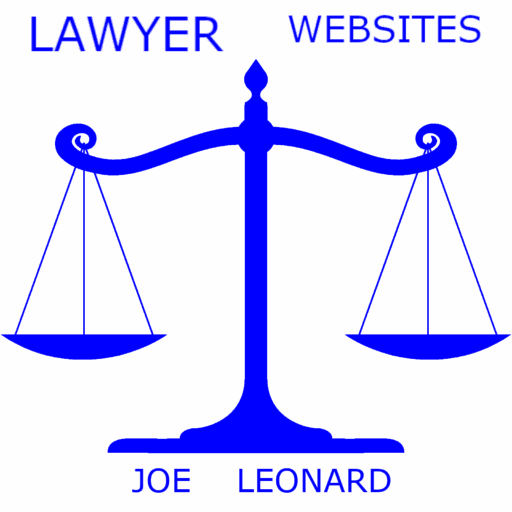Menu
Menu
All articles
100% of my clients come from referrals
My law firm gets referrals. Why do we need a website? Even if a law...
13 Website Errors that Annoy Users
Before you invest time and money into promoting your website with search engine optimization, social...
70% of clients check out a lawyer on the internet before contacting
joelJune 5, 2025All lawyer articles,Finding clients,General articles,General website information,Referrals,Websites for(0)
70% of clients check out a lawyer on the internet before contacting Potential clients are...
All the advice that we received on how to plan for our retirement was wrong
Our parents, school counselors, financial advisers, newspapers, books, and peers all told us to ►Study...
As a lawyer, I don’t need a website. I rely on referrals.
Who needs a law firm website? I get plenty of referrals as a lawyer Even...
Avoid Business Owner Burnout
Choosing to go into business for you is a major decision that usually means a...
Brand Your Business
Some small business owners believe they can stand out with just a great product and...
Build Your Virtual Business
In this age of instant communications and Web-based business services, there’s more than one way...
Building a Quality Attitude
A winner has a positive confident attitude about themselves, others and the situations which they...
Finding clients
70% of clients check out a lawyer on the internet before contacting
joelJune 5, 2025All lawyer articles,Finding clients,General articles,General website information,Referrals,Websites for(0)
70% of clients check out a lawyer on the internet before contacting Potential clients are...
How can lawyers get clients?
How can lawyers get clients? There is no shortage of people looking for exceptional legal...
How can lawyers lose clients?
How do lawyers lose clients? Lawyers can lose clients for a variety of reasons, ranging...
How do clients find a lawyer?
This article discusses how potential clients go about finding a lawyer to represent them. How...
How law firms can increase leads and obtain new clients.
It’s no secret that Florida is a great place to live and work. Which is...
How Lawyers can get new clients
How lawyers can get new clients Lawyers can get new clients through a mix of...
How to get referral from other lawyers
This article discusses how to get client referrals from other lawyers. To learn how to...
How to use a website to find more clients
Lawyers can use a website to attract and convert clients by following these key strategies:...
Lawyer Tips for getting more clients
Lawyer tips for getting more clients Here are some common ways that law firms can...
- 1
- 2
Referral articles
100% of my clients come from referrals
My law firm gets referrals. Why do we need a website? Even if a law...
70% of clients check out a lawyer on the internet before contacting
joelJune 5, 2025All lawyer articles,Finding clients,General articles,General website information,Referrals,Websites for(0)
70% of clients check out a lawyer on the internet before contacting Potential clients are...
As a lawyer, I don’t need a website. I rely on referrals.
Who needs a law firm website? I get plenty of referrals as a lawyer Even...
How to get referral from other lawyers
This article discusses how to get client referrals from other lawyers. To learn how to...
How to handle a referral
How to handle referrals given to you This article discusses how to hanle client referrals...
Lawyers don’t need a website – or do they?
I don’t need a law firm website. Most of my clients come from referrals. Did...
Website articles
70% of clients check out a lawyer on the internet before contacting
joelJune 5, 2025All lawyer articles,Finding clients,General articles,General website information,Referrals,Websites for(0)
70% of clients check out a lawyer on the internet before contacting Potential clients are...
Comments on Why lawyers need a website
Comments on why lawyers need a website Comments gathers from the Internet on some reasons...
Do potential legal clients expect to visit a lawyer’s website?
With 70% of all potential clients first visiting a law firms website before making contact...
How to use a website to find more clients
Lawyers can use a website to attract and convert clients by following these key strategies:...
Is your website ADA compliant?
Is your law firm website compliant with the Americans with Disabilities Act? Does my law...
Main reasons why a lawyer needs a website
Here are the main reasons why a lawyer needs a website Here are the main...
Results of having a lawyer website
Here is an example of the Merv Rabello Law Firm who previously had no website...
Slow loading website
Effects of a slow website A slow website can lead to a significant loss of traffic...
Too Many Lawyers Don’t Have Websites
Too Many Lawyers Don’t Have Websites Not having a website can cause a firm to...
- 1
- 2
Examples
70% of clients check out a lawyer on the internet before contacting
joelJune 5, 2025All lawyer articles,Finding clients,General articles,General website information,Referrals,Websites for(0)
70% of clients check out a lawyer on the internet before contacting Potential clients are...
Proposal for Family Law Lawyers
Typical Proposal for Family Law attorneys Introduction In an area as personal and sensitive as...
Websites for Bankruptcy Lawyers
Websites for Bankruptcy attorneys Did you know that over 30% of people looking for a...
Websites for Criminal Defense Lawyers
Websites for Crimnal Defense attorneys d you know that over 30% of people looking for...
Websites for Employment Lawyers
Websites for Employment and Labor attorneys Did you know that over 30% of people looking...
Websites for Estate Planning Lawyers
Websites for Estate Planning attorneys Did you know that over 30% of people looking for...
Websites for Family Law Lawyers
Websites for Family Law attorneys Did you know that over 30% of people looking for...
Websites for General Practice Lawyers
Websites for General Practice attorneys Did you know that over 30% of people looking for...


